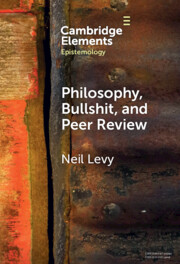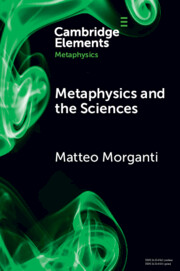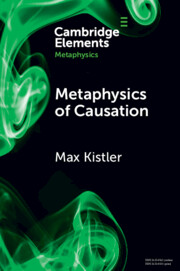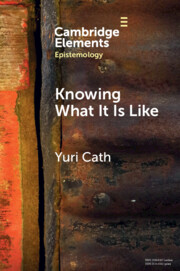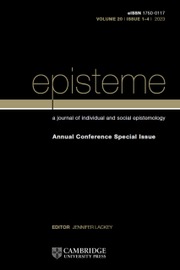Philosophy, Bullshit, and Peer Review
Peer review is supposed to ensure that published work, in philosophy and in other disciplines, meets high standards of rigor and interest. But many people fear that it no longer is fit to play this role. This Element examines some of their concerns. It uses evidence that critics of peer review sometimes cite to show its failures, as well as empirical literature on the reception of bullshit, to advance positive claims about how the assessment of scholarly work is appropriately influenced by features of the context in which it appears: for example, by readers' knowledge of authorship or of publication venue. Reader attitude makes an appropriate and sometimes decisive difference to perceptions of argument quality. This Element finishes by considering the difference that author attitudes to their own arguments can appropriately make to their reception. This title is also available as Open Access on Cambridge Core.
Product details
January 2024Adobe eBook Reader
9781009256285
0 pages
This ISBN is for an eBook version which is distributed on our behalf by a third party.
Table of Contents
- Introduction
- 1. Bullshit philosophy
- 2. Intellectual charity in everyday (Academic) life
- 3. Too much trust? The lesson of hoaxes
- 4. Publication requires commitment
- 5. In Lieu of a conclusion
- References.

